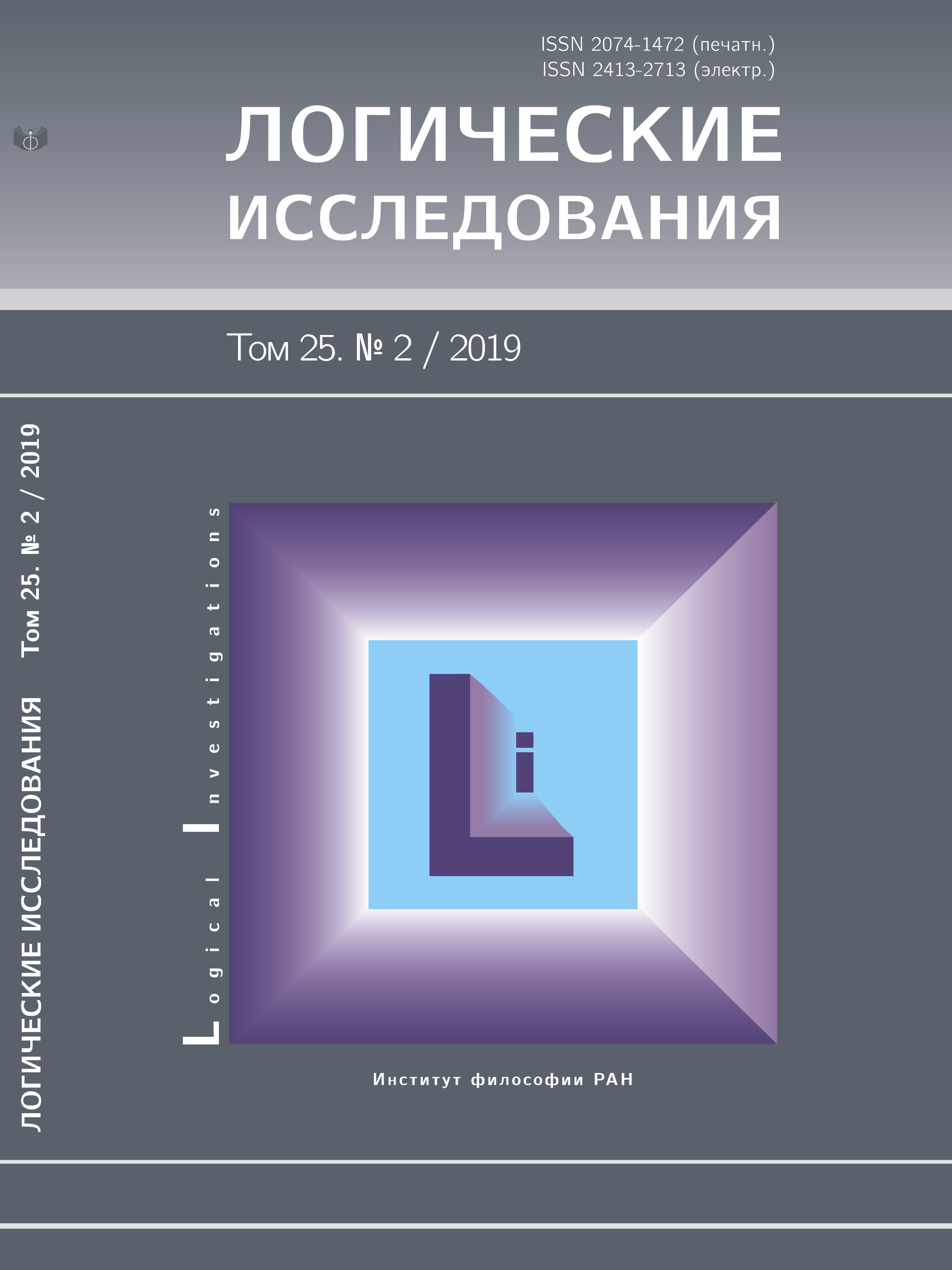Game-theoretical interpretation of abelian logic A
##plugins.themes.bootstrap3.article.main##
Abstract
In the present paper we introduce a variation of Giles's game that captures the semantics of Slaney and Meyer's Abelian logic. This is a variation of the game earlier proposed for the Łukasiewicz infinitely-valued logic. We discuss two possible interpretations of this game. One of the interpretations involves a reference to different types of agents. We also give a brief description of the Abelian logic which as well corresponds to one of the comparative logics proposed by Casari. By different types of agents, we understand agents with diverse cognitive presumptions and capabilities. This reflects the idea that different agents can be encoded by a game (dialogue) semantics and truth (and validity) can be seen as a product of different types of communications between agents, establishing the relation between various types of moves available to the players and the resulting type of rationality. However, the main focus of the paper is concentrated on the technical result concerning the game proposed in the paper. In a separate section, we prove that this game is adequate to the Abelian logic. The game can be extended to the one allowing for the disjunctive strategies. As immediate future research, we suggest proving that Proponent’s winning strategies for some formula $F$ in the game for Abelian logic $\textbf{A}$ with disjunctive strategies correspond to a derivation of the formula $F$ in the hypersequent calculus $\textbf{GA}$.
##plugins.generic.usageStats.downloads##
##plugins.themes.bootstrap3.article.details##
Copyright (c) 2019 Alexandra Pavlova

This work is licensed under a Creative Commons Attribution-NonCommercial 4.0 International License.
References
Ferm¨uller, 2009 – Ferm¨uller, C.G. “Giles’s Game and the Proof Theory of Lukasiewicz Logic”, Studia Logica, 2009, Vol. 92, pp. 27–61.
Girard, 1987 – Girard, J.Y. “Linear logic”, in: Theoretical Computer Science, 50, 1987, pp. 1–102.
Hintikka, 1996 – Hintikka, J. The Principles of Mathematics Revisited, Cambridge: Cambridge University Press, 1996.
Krabbe, 2006 – Krabbe, E.C.W. “Dialogue Logic”, in: Handbook of the History of Logic, vol. 7, eds. D.M. Gabbay and J. Woods, New York: Elsevier, 2006, pp. 665–704.
Kubyshkina et al., 2016 – Kubyshkina, E., Zaitsev, D.V. “Rational Agency From a Truth-Functional Perspective”, in: Logic and Logical Philosophy, 2016, Vol. 25, No. 4, pp. 499–520.
Lorenzen et al., 1978 – Lorenzen, P., Lorenz, K. Dialogische Logik, Darmstadt: Wissenschaftlische Buchgesellschaft, 1978.
Metcalfe et al., 2005 – Metcalfe, G., Olivetti, N., Gabbay, D. “Sequent and Hypersequent Calculi for Abelian and Lukasiewicz Logics”, ACM Transactions on Computational Logic (TOCL), 2005, Vol. 6, pp. 578–613.
Meyer et al., 1989 – Meyer, R.K., Slaney, J.K. “Abelian Logic from A to Z”, in: Paraconsistent Logic: Essays on the Inconsistent, Philosophia Verlag, ed. G. Priest et al., 1989, pp. 245–288.
Paoli, 2001 – Paoli, F. “Logic and groups”, in: Logic and Logical Philosophy, 2001, No. 9, pp. 109–128.
Pavlova, 2017 – Pavlova, A.M. “What Hamblin’s Formal Dialectic Tells About the Medieval Logical Disputation”, in: Logical Investigations, 2017, Vol. 23, No. 1, pp. 151–176.
